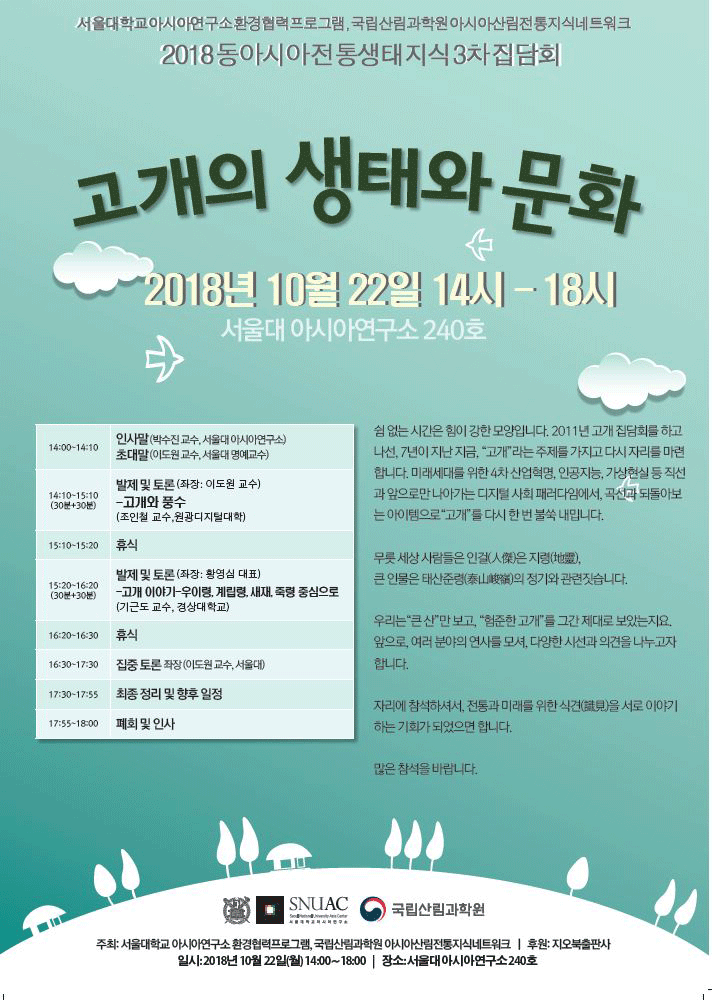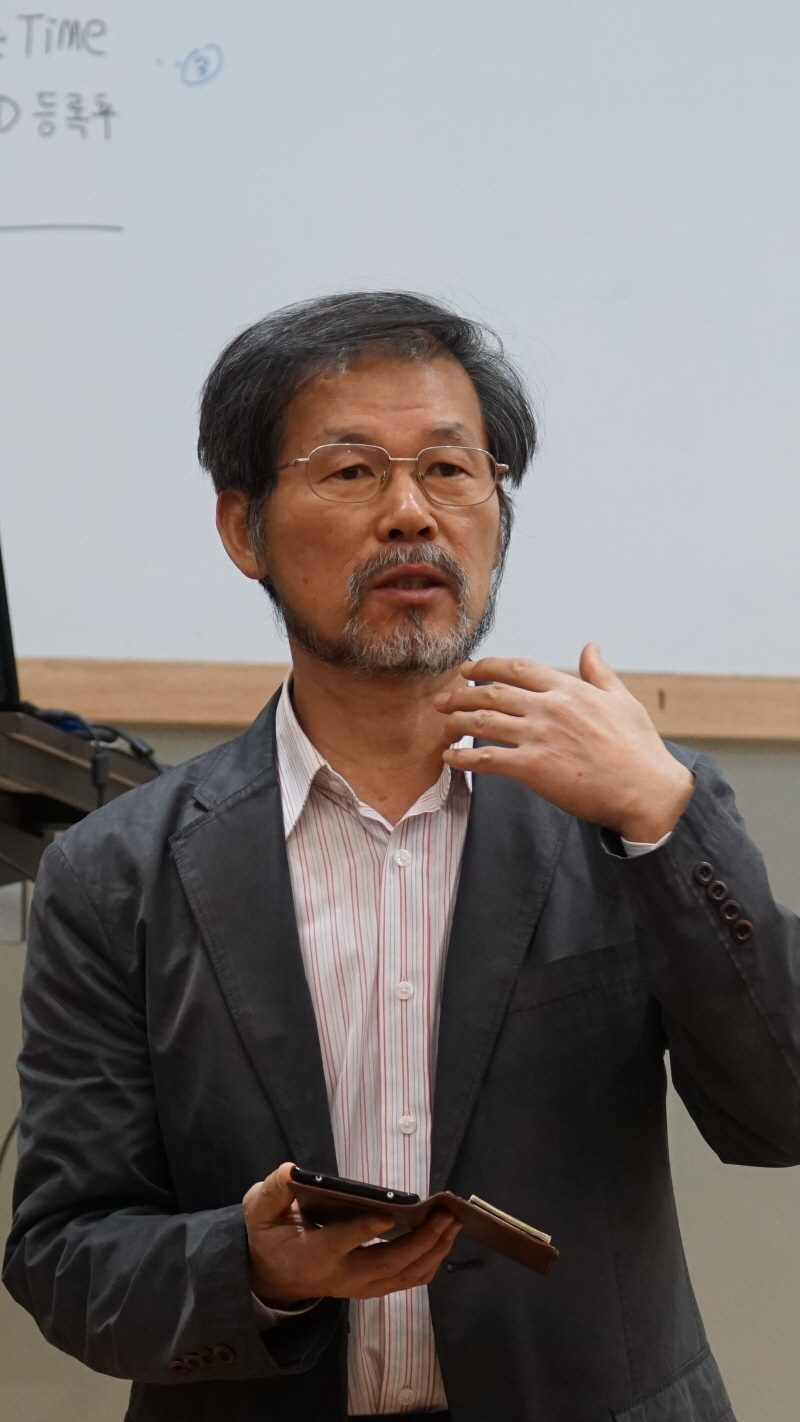The 3rd Conference for Culture and Ecosystem in Mountain Pass

- Date & Time: Monday, 22 October, 2018, 14:00-18:00
- Place: Room#240, SNUAC(Bldg#101)
- Speakers:
Professor In-cheol Cho
(Dept. of Oriental Science, Wonkwang Digital Univ.)
Professor Keun-doh Ki
(Dept. of Geography Education, Gyeongsang Nat’l Univ.) - Organizers: SNUAC Environment Cooperation Program, National Institute of Forest Science
- Sponsor: GEOBOOK
- Inquiry: Seungjin Lee / +82-10-9287-7155 / rekamiru@snu.ac.kr
Abstract
The third Conference for Culture and Ecosystem in Mountain Pass is co-organized and sponsored by SNUAC Environmental Cooperation Program, National Institute of Forest Science, and GEOBOOK. Scientists studying forest ecology, topography experts, and pungsu researchers will come together to discuss the significance and importance of ‘mountain pass’ at this conference. The focus of this conference will be on the unique characteristic of Korean Peninsula where the mountainous geomorphology separates residential areas. Moreover, the communication and culture formation traversing mountainous areas from the beginning of the establishment of traditional society and diverse aspects including humanities, geomorphology, and ecology of ‘mountain pass’ that have affected residential areas development will be examined. The conference was organized to discover the value of ‘mountain pass’ within the whole Asian region and to establish the basis for comparative research in Asia.
Review

The Conference for Culture and Ecosystem in Mountain Pass was a forum for discussing the significance of ‘mountain pass’ by experts in various fields including topography and pungsu. In this third conference, the emphasis was on the unique characteristic of the Korean Peninsula where the mountainous geomorphology separates residential areas. The formation of culture that goes beyond mountain passes at the beginning of the traditional society and the diverse aspects such as humanities and ecology of mountain passes that have influenced on the development of residential areas were scrutinized in this conference. Discussions on discovering the meaning and significance of mountain passes in the general Asian region in order to establish the basis for future comparative research followed in the end.
